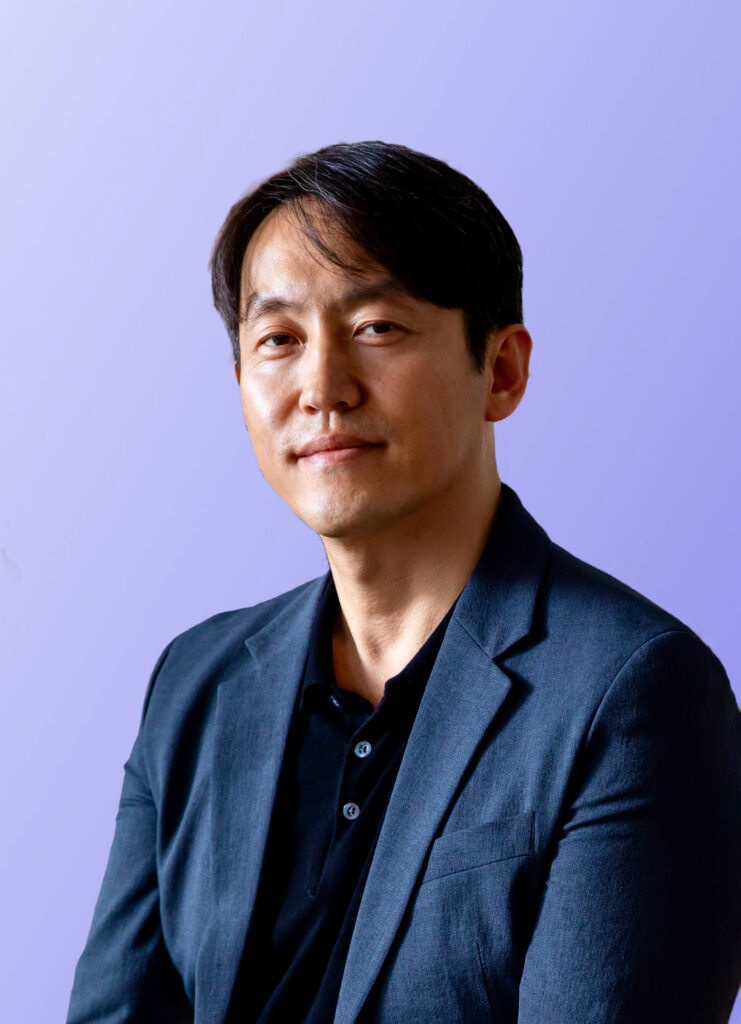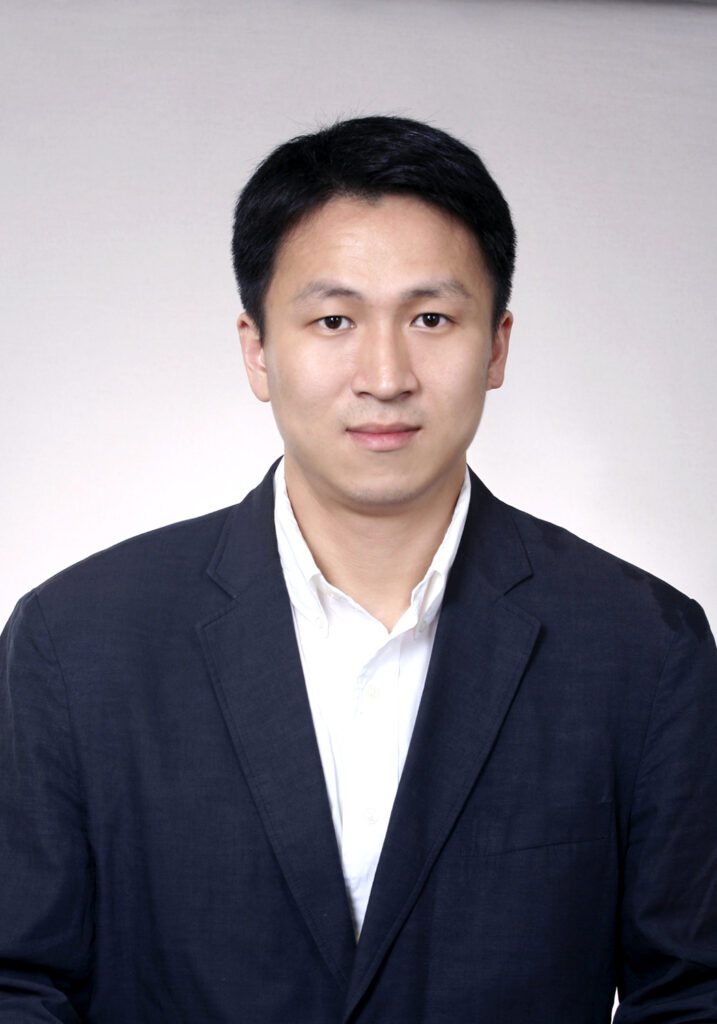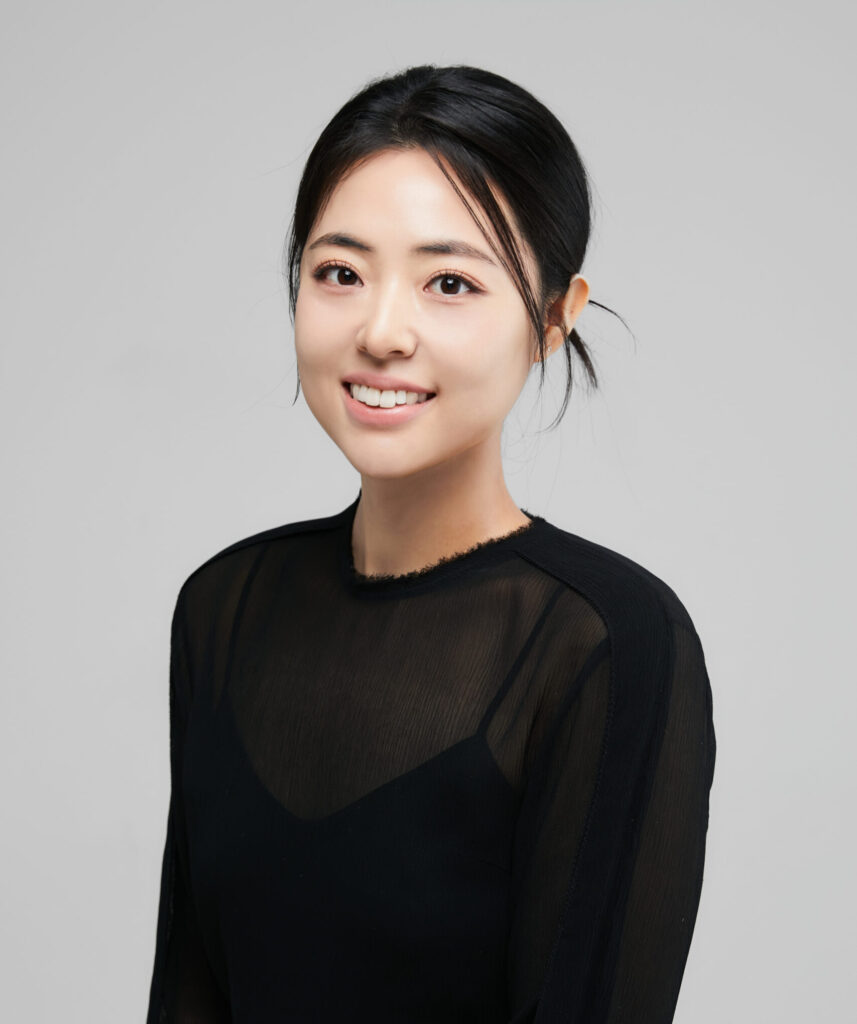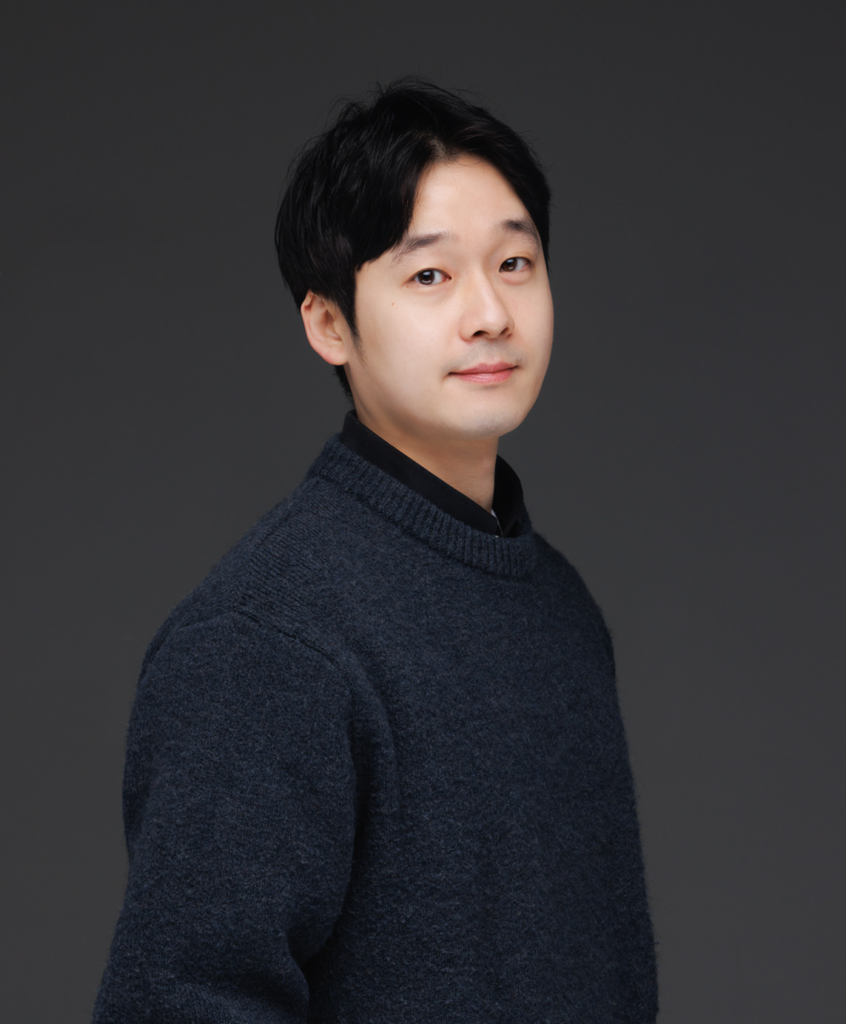Graduate School
The Art & Technology Graduate Program trains the next generation of creators, experts, and researchers who can lead the development of human culture and community by fusing art and technology with humanistic insights and reflective thinking.
In Art & Technology, the curriculum between undergraduate and graduate courses are linked. The Graduate school provides a professional education to cultivate experts in the fields of HCI(Human-Computer Interaction), AI(Artificial Intelligence), XR(eXtended Reality), Future Cinema, Computational Audio Performance, Media Aesthetics, and creative industries.
Art & Technology Graduate Program
Art & Technology Graduate School aims to cultivate talent leading in cutting-edge global creative fields. To achieve this, we are recruiting students for master’s and doctoral programs in Media Engineering, Media Art & Technology, and Cinematic Art.
Humanistic imagination, artistic sense, and cutting-edge media technologies are expected to become the basis of the industrial revolution in the near future (artificial intelligence (AI), Internet of Things (IoT), virtual/mixed reality (VR/AR), big data analysis, wearables, etc. ) We aim to cultivate innovative talents who create new value in the creative industries (art, exhibitions, performances, contents, design, advertising, fashion, education, entertainment, etc.) through interdisciplinary research. Any humanities, arts, or engineering major who dreams of innovation through cross-disciplinary research based on creativity that promotes new innovations in media technology and arts can apply.
Media Art & Technology
Master of Arts and Science: M.A.S.
Doctor of Philosophy in Art Engineering: Ph.D.
This specialization aims to foster innovative talents who create new value in the creative industry fields (such as arts, exhibitions, performances, content, design, advertising, fashion, education, and entertainment) through interdisciplinary fusion research combining artistic imagination, artistic sensibility, and advanced media technology (VR/AR, artificial intelligence, big data, 3D printers, wearables, drones, etc.). Applicants from all humanities, arts, and engineering majors who dream of innovation through boundaryless research based on creativity are welcome to apply.
Media Engineering
Master of Science: M.S.
Doctor of Philosophy in Engineering: Ph.D.
This specialization focuses on advanced engineering learning and research for new media and arts. It covers deep learning, computer graphics, computer vision, and data science for artificial intelligence (AI), Internet of Things (IoT), virtual/mixed reality (VR/AR), big data analysis, and autonomous driving, aiming to pursue engineering research that fosters new innovations in media and arts. Not only natural science and engineering majors but also applicants from other fields interested in research in this area are eligible to apply.
Cinematic Art
Master of Arts: M.A.
Doctor of Philosophy in Art: Ph.D.
This specialization creates and produces new cinematic forms while studying the phenomenon of images produced with cinematic techniques, which go beyond theaters to art galleries, performance venues, and new media platforms. It explores innovative methods of presenting images in fields such as film, documentary, interactive media, video installation, media performance, and sound art, based on education in film directing, storytelling, and visual technology. Cinematic Art aims to cultivate talents who can actively respond to and lead changes in media industry and artistic institutions by insightfully understanding human perception and senses expanded by media technology, through balanced education in production and theory, and interdisciplinary approaches.
Professional Training for VR·AR
Art & Technology Graduate Program provides scholarship from the Professional Manpower Training for VR·AR from 2020 – 2024 (5 years) as part of the Ministry of Trade, Industry and Energy’s R&D project.
ART + TECH
Creative Startup
As part of the ‘Art Korea Lab: University Arts Startup Support Project’ from Ministry of Culture, Sports and Tourism, five domestic universities participated to foster art start-up teams within universities and build a foundation for art start-ups. Cultivating future innovators by combining art with cutting-edge technologies such as XR and AI
How to Apply ?
At the Art & Technology Graduate School, it is recommended to have a preliminary consultation with the prospective research group’s supervising professor before applying for the master’s/doctorate program. Through this, students have the advantage of understanding the content of the desired supervising professor and research group before admission.
Even if a preliminary consultation is not conducted prior to admission, students can still select supervising professors and research groups from their first to third choices. In this case, each semester, department professors consider their research group situations to determine the Table of Organization (TO), and the department assigns supervising professors and research groups based on the TO for each semester and the ranking of students’ desired research groups.
For inquiries regarding the Art & Technology Graduate School, please contact
– Graduate School Administration Team (entrance inquiries, +82-2-705-8168)
– Art & Technology Major Office (Inquiries, +82-2-705-4826)
Curriculumn
Course
Content
Research Group

Transmedia Storytelling Group
Sangyong Kim
While working on a long film scenario of <Finding a Happy Way>, he/she excavated on capturing the voices of those who cannot speak up through the contents that contain prominent social issues in connection with society.
As a representative of the Youth Cinema iCinemaTech, he/she is working on a graphic novel <Finding a Happy Way> which uses big data from immigrants in Gimpo in collaboration with the Youth Preferential Film Theater Foundation Human Rights Solidarity Center and movie programming work which will be screened in 2018 Bonn Cinema-tech.
As a representative of the creative group INSPIRA, with a lineup of creative performances (play, music, and performance) through various advanced media experiments in 2018. Underground musician Gerda(2018 September) multimedia music concert, and album production.
nicosj@hanmail.net
Tel
+82-2-705-7933
Location
X413

The Creative Computing Group is a collective of creative technologists, visual artists, and HCI researchers committed to exploring the innovative applications of computing. Working at the intersection of art and computer science, we engage in diverse creative explorations, leveraging cutting-edge technologies such as Artificial Intelligence and eXtended Reality. Our mission is to develop computational arts and media that drive meaningful social and cultural impact.
jusub@sogang.ac.kr
Tel
+82-2-705-7976
Location
X405

Sensorial Media Group
Junho OH
‘Sensory Media Group’ studies the historical and social relationship between media and senses by crossing sensory research, media archaeology, media aesthetics, science-technology sociology, and archive research. We also highlight ‘Artistic Research’, which explores new methodologies that expand media experiences and structure knowledge audiovisually through artistic practice. ‘Sensory Media Group’ aims to be a research community that pursues innovation in sensory experience based on consideration of not only the materiality of light and sound but also the unique characteristics of media technology that mediates it.
junhooh@sogang.ac.kr
Tel
+82-2-705-8905
Location
GA709

Future Experience Design Group
Sunok LEE
The ‘Future Experience Design Group’ focuses on shaping better user experiences by designing interactions between future technologies and humans. We explore how creative design can bridge the gap between technology and society, fostering a more inclusive and sustainable future. Our research places human-centered design at the core, leveraging UX/UI methodologies to help users engage with emerging technologies in meaningful ways. Through this approach, we aim to develop design solutions that are not only socially impactful but also ethically responsible.
sunoklee322@gmail.com
Tel
TBA
Location
TBA

Music and Art Learning (MALer) Lab (@ Dept. Art & Technology, Sogang University) aims to understand music and art computationally, especially through deep learning.
dasaemj@sogang.ac.kr
Tel
+82-2-705-8381
Location
X402

Creative Artificial Intelligence Group
Haedong JEONG
Creative Artificial Intelligence (CAI) Group (@ Dept. of Art & Technology, Sogang University) explores how generative AI can enhance human creativity and redefine human-computer collaboration. Our research focuses on making deep learning models more interpretable, as we believe that understanding their internal decision mechanisms is the first step toward building reliable, human-aligned AI systems.
We are particularly interested in:
– Explainable AI (XAI) techniques to uncover the reasoning behind AI decisions.
– Generative models (e.g., Text-to-Image models, Large Language Models) that inspire and amplify human creativity.
– Creativity evaluation metrics to systematically measure and improve AI-driven creative processes.
By bridging AI interpretability and generative creativity, we aim to develop AI tools that empower artists, designers, and creators to push the boundaries of innovation.
haedong@sogang.ac.kr
Tel
TBA
Location
TBA

Emerging Media Arts Group explores the creative usage of digital media for artistic expressions, innovation and social intervention by combining contemporary art, technology, the sciences and design.
jeanhochu@sogang.ac.kr
Tel
+82-2-705-7899
Location
X411

Lifestyle Media Lab is creating and researching new media designs that can enrich people’s sensations & feelings, empower empathic relationships in society, and augment playful experiences in near future lifestyles based on Human-Computer Interaction Design.
yongsoon@sogang.ac.kr
Tel
+82-2-3274-4893
Location
X409
After Graduation
After graduation, Media Art & Technology majors can pursue careers as producers, creative directors, planners in creative fields such as new media technology-based content startups, advanced exhibitions/performances/advertisements, media artists, interaction designers, UI & UX designers, and professors/researchers in related fields.
Media Engineering majors can enter various media fields such as advanced video engineering related to mobile communications and robots, video content planning/production applied to mobile phones and various terminals, special effects for films and TV, game production, 3D animation production, and exhibition planning.
Cinematic Art majors can pursue careers in various fields such as university professors, film directors, directors of photography, broadcast station producers, screenwriters, media artists, and companies in the film and promotional sectors.
FAQ
Question
Answer
Why Art & Technology Graduate Program?
In an era where creativity becomes crucial, Art & Technology skills are essential for creators in the 21st century. For these creators, Sogang University started a new Art & Technology major for the first time in Korea. We are educating talented students with the sensitivity to imagine the humanity-based creative and innovative ideas needed in the rapidly changing world. Also, the artistic expression skills and advanced technology skills to materialize their imagination are professionally trained. Art & Technology Graduate School, which opened in 2016, is the first graduate school in the field of trans-displanary new media in Korea.
Difference between Undergraduate and Graduate Programs
The goal of the Art & Technology undergraduate program is to learn the fundamentals of humanities, art/design, and computer science through project-based interdisciplinary education, fostering creative innovators with good collaborative skills and a broader perspective. Through this, students develop collaborative skills and a broader perspective. Building on the undergraduate program, the goal of the master’s/doctoral program is to pioneer new and innovative fields in creativity using advanced technologies and to cultivate individuals capable of leading the cultural industry. In other words, while the undergraduate program emphasizes learning, the master’s/doctoral program is crucial for exploring new interdisciplinary fields and becoming an expert in the chosen area. The curriculum of the undergraduate program and the courses in the graduate program are interconnected. By linking these course sequences, we specialize in XR (Mixed Reality), AI (Artificial Intelligence), HCI (Human-Computer Interaction), Future Cinema, Computational Audio & Performance, Media Aesthetics, Creative Industry, and Research, providing a more specialized education.
Programming skill needed ?
Leaders in the creative media field require essential abilities to be innovative, including a humanity-centered sensitivity, imagination in artistic expression, and proficiency in advanced technology implementation. These skills are crucial for building ideas and effectively communicating throughout the entire process of designing and executing a project, recognizing the importance of collaboration and communication with others.
Whether you are an artist, technologist, or creative director, an open-minded passion for collaboration and convergence holds greater importance than any other skill.
Applying to Media Technology Major without engineering or tech. background?
Not only natural science and engineering majors but also the students with different majors who are interested in researching this field can apply.
Acting in Cinematic Art major?
The key of cinematic art major education is to create a new cinematic format along with research as today’s video varies across new media platforms. Cinematic Art major aims to foster talents who can actively lead the changes in the media· art industry. We provide well balanced education of production and theory and multidisciplinary approach of human sense that media technology expands. We do not provide an educational curriculum only for acting majors.
Any differences between the 1st and 2nd application of admission?
Master’s and Ph.D. graduate students are recruited twice a semester to help as many applicants apply for graduate school as possible. There is no difference between the first recruitment and the second recruitment every semester.
English Score?
Art & Technology major is in part of Sogang University’s general graduate school, and you must pass the comprehensive test and English test to write a graduation thesis. If you submit your English score at the time of admission, the English test will be exempted. However, if you do not have an English score, you must submit your English grade or pass the graduate English test before the semester you write a graduation thesis.
Portfolio?
‘Media Arts&Technology’ and ‘Cinematic Arts’ applicants must submit a copy of their portfolio. Portfolio must be submitted in free form within 10 papers of A4s. Only applicants who wish to submit additional digital materials and videos can put them in USB and submit them along with the application number. For media engineering majors, you don’t need to submit your portfolio.
Job Positions for Art & Technology Graduates
Entrepreneur
•Startup Founders
•Executives
•Cultural Marketer
Producer
• PD / AE / Curator
• Project Manager
• Coordinator
Director
• Creative Director
• Art Director
• Technology Director
Planner
• Project Manager
• Cultural Product Designer
• Service Designer
• Game / Content Designer
Imagineer
• One-man Creator
• Software Developer
• Inventor
Artist
• Digital Artist
• New Media Artist
• Sound Artist
• 3D Modeler / Animator
Designer
• UI/UX Designer
• Interaction Designer
• Graphic Designer
Academia
• College Professor
• Adjunct Professor
• Researcher
